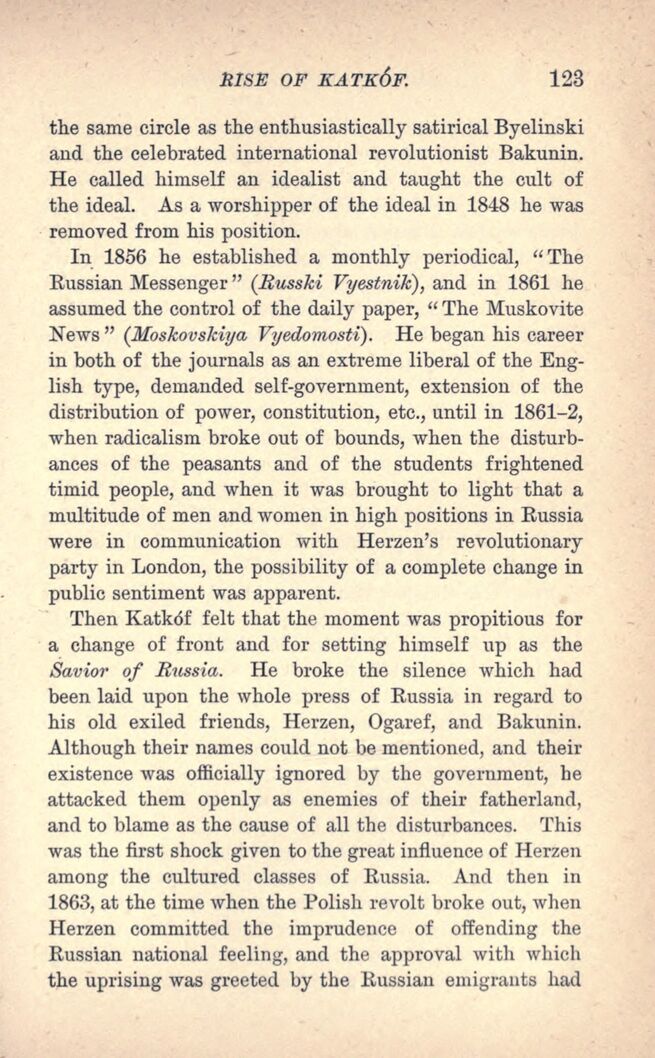
Full resolution (JPEG) - On this page / på denna sida - VII

<< prev. page << föreg. sida << >> nästa sida >> next page >>
Below is the raw OCR text
from the above scanned image.
Do you see an error? Proofread the page now!
Här nedan syns maskintolkade texten från faksimilbilden ovan.
Ser du något fel? Korrekturläs sidan nu!
This page has been proofread at least once.
(diff)
(history)
Denna sida har korrekturlästs minst en gång.
(skillnad)
(historik)
the same circle as the enthusiastically satirical Byelinski
and the celebrated international revolutionist Bakunin.
He called himself an idealist and taught the cult of
the ideal. As a worshipper of the ideal in 1848 he was
removed from his position.
In 1856 he established a monthly periodical, “The
Russian Messenger” (Russki Vyestnik), and in 1861 he
assumed the control of the daily paper, “The Muskovite
News” (Moskovskiya Vyedomosti). He began his career
in both of the journals as an extreme liberal of the
English type, demanded self-government, extension of the
distribution of power, constitution, etc., until in 1861-2,
when radicalism broke out of bounds, when the disturbances
of the peasants and of the students frightened
timid people, and when it was brought to light that a
multitude of men and women in high positions in Russia
were in communication with Herzen’s revolutionary
party in London, the possibility of a complete change in
public sentiment was apparent.
Then Katkóf felt that the moment was propitious for
a change of front and for setting himself up as the
Savior of Russia. He broke the silence which had
been laid upon the whole press of Russia in regard to
his old exiled friends, Herzen, Ogaref, and Bakunin.
Although their names could not be mentioned, and their
existence was officially ignored by the government, he
attacked them openly as enemies of their fatherland,
and to blame as the cause of all the disturbances. This
was the first shock given to the great influence of Herzen
among the cultured classes of Russia. And then in
1863, at the time when the Polish revolt broke out, when
Herzen committed the imprudence of offending the
Russian national feeling, and the approval with which
the uprising was greeted by the Russian emigrants had
<< prev. page << föreg. sida << >> nästa sida >> next page >>